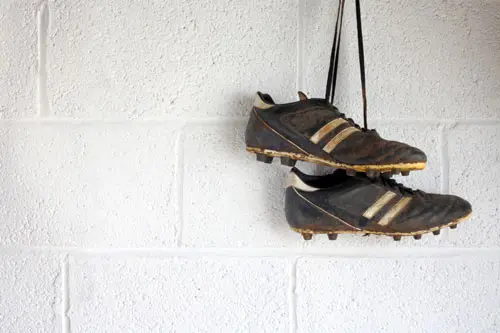
May 06, 2014 • 4 min read
Should I Let My Kid Quit Sports?
Posted in:
By Craig Sigl, Mental Toughness Trainer for Athletes
As an expert working with kids in sports, I get the question often from parents: “Should I let my kid quit sports?” Here’s a typical email I receive from a parent:
Question:
“We want to help our daughter, now 12, with handling the pressure of playing with a premier club soccer. She is by far one of the better skilled players and excellent at practices but would shut down if she fumbled or felt she made a mistake on the field. We’ve struggled with this the last 2 seasons, though she has made some improvements.
As parents, her play and potential has fueled our support and encouragement.
Recently, she didn’t make the 1st team for next year. We felt that might be better because it would mean less stress for her. However, she now complains about going to practice, playing with off-season leagues, etc.. She just doesn’t seem to enjoy it anymore.

We are torn about whether we should “take a break” and risk her not ever doing it again or we should “make ” her work through her challenges with the hopes that this is a life lesson in learning to handle stressful situations in life; not just soccer. It’s one of those things where I don’t think she realizes how good she is and if she knew, it would allow her to not “shut down.” I feel her talent in soccer will go to waste if she stops. 🙁
I appreciate any feedback you can give.
P.S. We also started doing horse riding lessons as another way to build confidence and as a change of pace to the soccer. Now, all she wants to do is that.
Here is my answer:
I have heard this type of story many times. Based on what you’ve written, I would advise letting her do horse riding and risking not playing soccer again.
The reason is, no matter how much talent an athlete has, if she doesn’t have the motivation for playing, it’s all for nothing. We can’t create motivation in someone else, we can only help them find what is already there (if it’s there). This is so important for parents to recognize that our kids are not small versions of us who just lack our wisdom. They are as unique as a stranger on the street with their own desires, passions and what drives them.
Yes, her wanting to quit may be due to her perceived failure from not making the team, but that doesn’t mean a parent should force a 12 year old to face it head on. Kids are generally sensitive and may need time to forget about it and rebuild confidence.
A year (or more) off will help clear her mind and allow her to create passion for sports again.
At this age, she will actually learn much more from doing a different sport/activity that she enjoys than “working through” one she doesn’t. We don’t want our kids associating sports with drudgery, resentment and other difficult feelings. Sports is supposed to be an opportunity to learn how to give something your all, how to focus on a goal and achieve it, and how to create self confidence.

At 12, especially, there is no reason to specialize in one sport anyway. She can easily pick up soccer again in a year or even longer and her talent won’t have gone anywhere. Let some time go by without mentioning soccer. She will run into friends who still play soccer and those memories of her good play will always be with her.
You don’t want to be one of those parents who forces their child to play a sport they aren’t excited about. You will likely create problems between you and your child and, trust me, it’s not worth it to hurt your relationship with your child over this regardless of how much talent she has in that sport.
Your connection to her is much more important than her “maybe having success in soccer.”
Take stock of what you really want your child to learn and experience through. Is it success at all costs? Learning and living these ideas through sports is what will do the most for her long term success, not only in sports…but in her whole life.
Craig Sigl’s work with youth athletes has been featured on NBC TV and ESPN. Get his free ebook: “The 10 Commandments For a Great Sports Parent” and also a free training and .mp3 guided visualization to help young athletes perform under pressure by visiting MentalToughnessTrainer.com.
